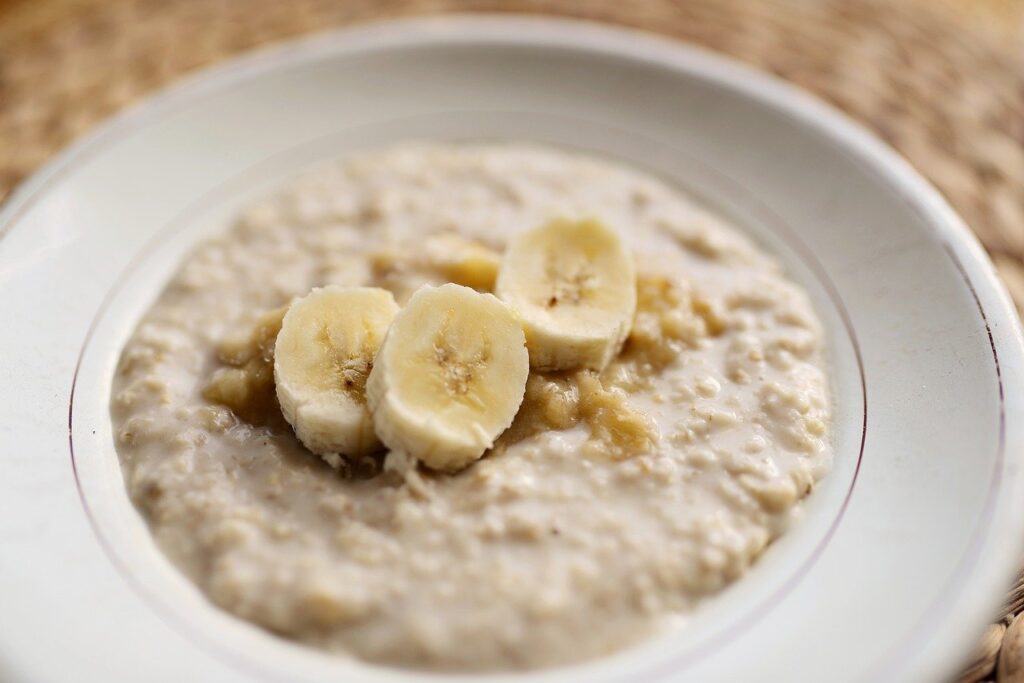Certain types of porridge, crumpets, and popular breakfast cereals have been included in the list of products classified as “less healthy” under a new UK junk food advertising ban. The government introduced this legislation to address rising childhood obesity levels and limit children’s exposure to foods high in fat, sugar, and salt. The ban applies to paid online advertisements and TV ads shown before 9 PM, with enforcement starting in October 2025.

Foods categorized as “less healthy” include fast food, sweetened beverages, ready meals, pastries, cereal bars, and even some yoghurts. Products like crumpets, pancakes, scones, and certain porridge oats have been grouped under the same restrictions. The classification is based on a scoring system that evaluates sugar, fat, and protein content. However, healthier alternatives, such as unsweetened porridge or yoghurt products without added sugar or fat, will not be impacted.
Ad restrictions extend beyond TV, targeting paid-for online advertisements as part of the broader effort to combat childhood obesity. Recent NHS data shows that nearly one in ten reception-aged children are obese, with the number rising significantly by the time they enter secondary school. The ban also addresses excessive sugar consumption, a leading cause of tooth decay in one in five children aged five.
The policy has received mixed reactions. Cook and TV presenter Thomasina Miers described the ban as a courageous move against large food corporations dominating the food industry. She highlighted the substantial financial burden of food-related chronic diseases on taxpayers, citing research that pegs the cost at £268 billion annually in the UK. Miers believes the ban will alleviate pressure on the NHS and improve public health, though she insists the government must do more to address poor diets.
On the other hand, small business owners like Prasanna Callaghan, who runs a crumpet café near Buckingham Palace, criticized the ban. Callaghan argues the legislation unfairly categorizes crumpets as junk food, which could significantly impact his business. He expressed frustration with the lack of distinction between traditional baked goods and items like fried chicken.
Parents have also weighed in on the debate. Maria McCracken, a mother of two, disagrees with the advertising restrictions, arguing that educating children about balanced diets and cooking at home is more effective than government intervention. She emphasized the importance of parental responsibility and teaching children to make healthier choices while allowing for occasional indulgences.
Despite the criticism, the government expects the legislation to have a significant impact. Studies cited in the policy’s impact assessment show a clear connection between food advertising and calorie consumption. By restricting ads for less healthy foods, the government estimates the removal of 7.2 billion calories annually from children’s diets, potentially preventing thousands of cases of childhood obesity.
The advertising restrictions also address broader societal concerns about food marketing. The influence of advertisements on children has long been debated, with some arguing that marketing plays a critical role in shaping unhealthy eating habits. However, others, like former Conservative MP Paul Bristow, view the ban as overly broad and intrusive, calling on the government to trust individuals to make their own dietary choices.
The policy, delayed from its original implementation date in 2023, was introduced by former Prime Minister Boris Johnson. The government cited the cost-of-living crisis as a reason for giving food manufacturers additional time to adapt. Health Secretary Wes Streeting described the legislation as the first step toward prioritizing prevention over treatment, aiming to ensure a healthier start to life for children across the UK.
Industry leaders and health experts continue to debate the long-term implications of this ban. While some believe it is a necessary measure to curb childhood obesity and reduce healthcare costs, others argue for a more nuanced approach that balances public health with individual choice and economic considerations.
